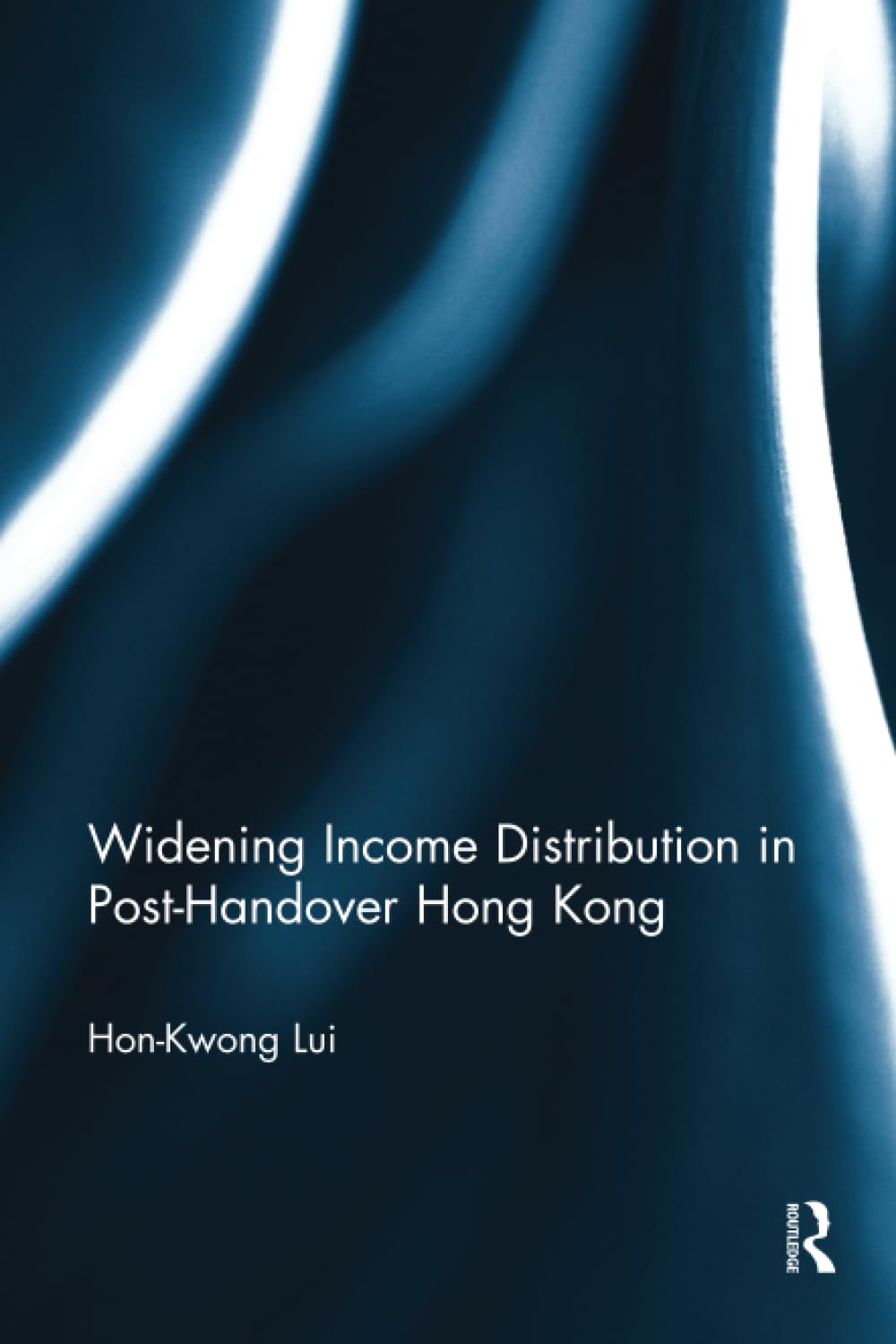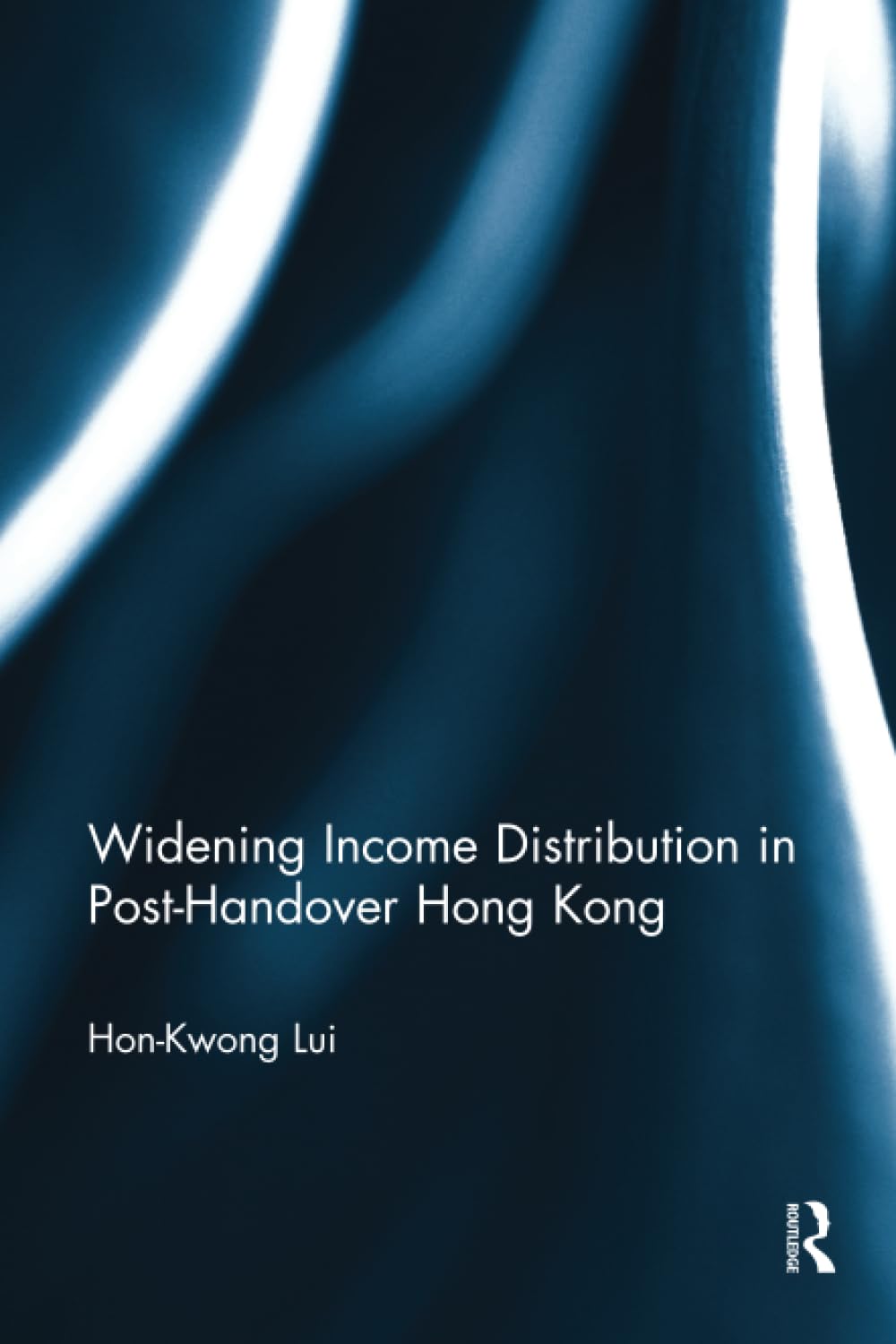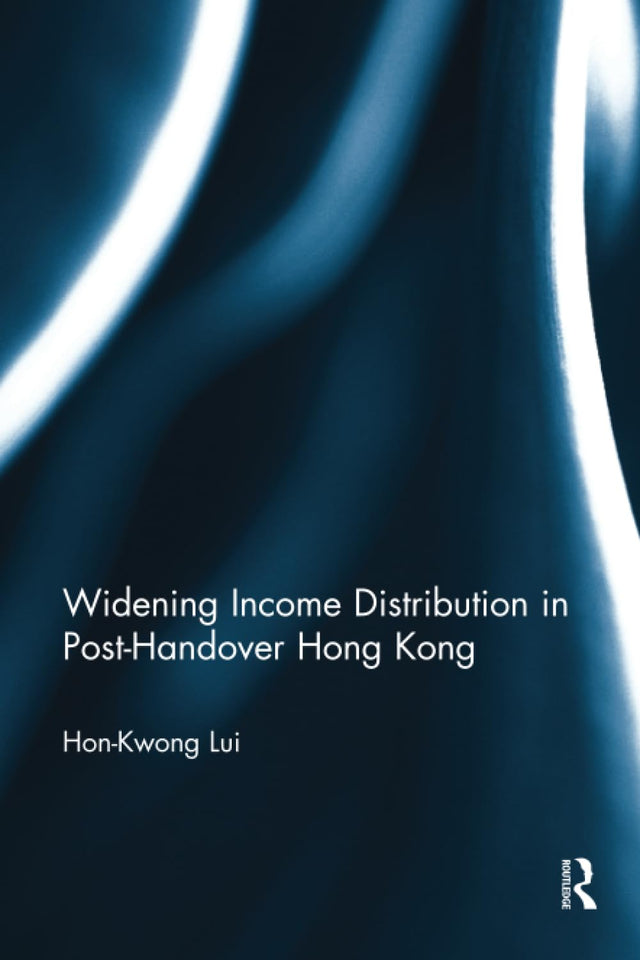WIDENING INCOME DISTRIBUTION IN POST-HANDOVER HONG KONG
WIDENING INCOME DISTRIBUTION IN POST-HANDOVER HONG KONG is backordered and will ship as soon as it is back in stock.
Couldn't load pickup availability
Genuine Products Guarantee
Genuine Products Guarantee
We guarantee 100% genuine products, and if proven otherwise, we will compensate you with 10 times the product's cost.
Delivery and Shipping
Delivery and Shipping
Products are generally ready for dispatch within 1 day and typically reach you in 3 to 5 days.
Book Details
-
Author: Hon-Kwong Lui
-
Publisher: Routledge
-
Language: English
-
Edition: 1st
-
ISBN: 9781138910362
-
Pages: 146
-
Cover: Paperback
-
Dimensions: 9.2 x 6.1 x 0.4 inches
-
Weight: Not specified
About the Book
Economic Development and Income Inequality in Hong Kong by Hon-Kwong Lui presents a comprehensive and timely analysis of the changing landscape of income distribution in Hong Kong, particularly in the post-handover era. Once celebrated for its robust economic growth and remarkably low unemployment rates—dropping to just 2.2% prior to 1997—Hong Kong now grapples with a growing income gap that has become a focal point of public discourse.
Drawing on the latest empirical data, this book explores the complex relationship between economic restructuring and income inequality. Contrary to popular belief, the findings reveal that economic restructuring alone does not fully account for the widening income disparities. The author examines multiple key factors, including the impact of public housing policies—directly affecting half of the city’s population—and how public rental housing programs influence income redistribution.
The book also delves into the ambitious expansion of tertiary education launched in 1989, which significantly increased the supply of university graduates. It evaluates the consequences of this expansion on wage structures and income equality. Additionally, it investigates disparities in income distribution between local residents and immigrant populations, adding another dimension to the broader economic narrative.
This analytical and data-driven study is an essential resource for researchers, economists, policy makers, and anyone interested in understanding the socio-economic dynamics of one of Asia’s most economically vibrant yet socially divided regions. It offers valuable insights for crafting effective policies to address income inequality and improve social welfare systems.







